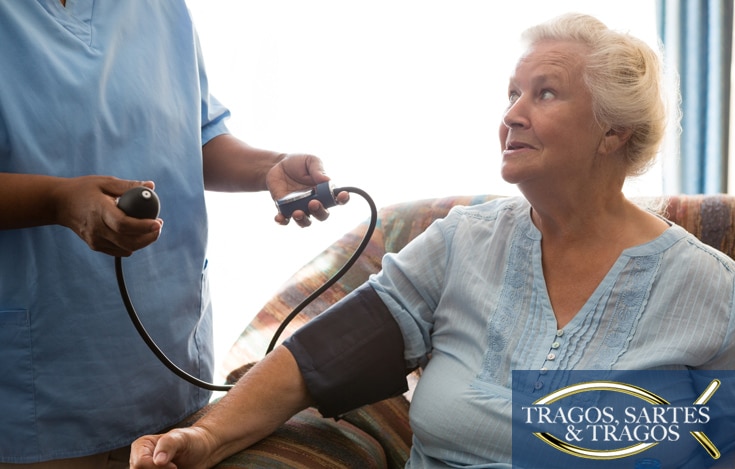Warning signs to watch for before choosing a Florida nursing home for your loved one
When you have to make the tough decision to admit a beloved family member to a nursing home or senior care facility, you expect that the staff at the facility will provide the proper care that your loved one deserves. While there are lots of nursing homes that do everything possible to ensure the safety, care and quality of life of each resident, there are some staff and facilities that commit the unthinkable: nursing home abuse.
Here are a few of the most common types of abuse that occur in nursing homes in Florida and nationwide, along with a few signs to look for if you suspect abuse is taking place.

Neglect
When nursing home staff makes the decision to not provide care (either unintentionally or intentionally), that is considered neglect. Even though neglect is a type of abuse that often occurs in elderly care facilities, it’s not always intentional.
In the eyes of the law, neglect occurs when someone doesn’t provide proper care because they are careless or because they get so overwhelmed with other tasks. If they are unable to provide the proper care to all residents in the nursing home, this is considered negligence.
Physical abuse
One of the most common types of abuse in nursing homes is physical abuse. This occurs when an employee, staff member or other resident intentionally causes physical harm to one of the residents in the facility. Some residents won’t say anything about the abuse because they are afraid, they are unable to speak or because they have been threatened.
Physical abuse includes actions such as hitting, kicking, pushing, hitting someone with an object or using restraints to limit a person’s movement. Signs of this kind of abuse include unexplained bruises and pain when you touch the person on an area of the body where abuse has occurred.
Psychological or emotional abuse
Not all abuse is physical. Verbal and emotional abuse also occur in nursing homes and have very real effects on the target of the abuse. The person who commits this kind of abuse often tries to instill fear or distress in their victim’s mind or make them feel worthless.
Examples of how this type of abuse occurs include calling residents names, making fun of the way that they dress or act, keeping them from contacting their family members or other residents, trying to take away the amount of time that residents can be on the phone or withholding services offered by the facility.
Sexual abuse
Another type of abuse that is not as widely reported on or talked about in nursing homes is sexual abuse. Residents often feel ashamed after the act occurs. They might feel threatened or that they somehow deserved the abuse. Sometimes, physical abuse occurs alongside sexual acts. Another reason why it’s sometimes difficult to detect this kind of abuse is that bruising or other signs are often hidden from family members.
Sexual abuse can happen to residents who are unable to move or speak, making it more difficult for the resident to report the incident. If you suspect this type of abuse has occurred, then the person who committed the act could be charged with molestation or even rape.
Financial abuse and fraud
Considering the vulnerability of many residents, it’s often easy for employees and staff to take advantage of a resident’s finances without being caught.
Employees might not allow residents to use their own accounts, which is often a sign that money has been taken. Families may not know that money has been removed from an account until the abuse has already taken place.
Other examples of financial abuse in nursing homes are identity theft, sudden changes in a resident’s will, and unexplained ATM withdrawals.
When to contact a Florida nursing home abuse lawyer
If you suspect that your loved one has been abused in any way while in a nursing home, it’s important to seek the justice that they deserve. Contact our experienced Tampa nursing home abuse lawyers at Tragos Law for more information starting an investigation.
Contact us today for your free consultation.